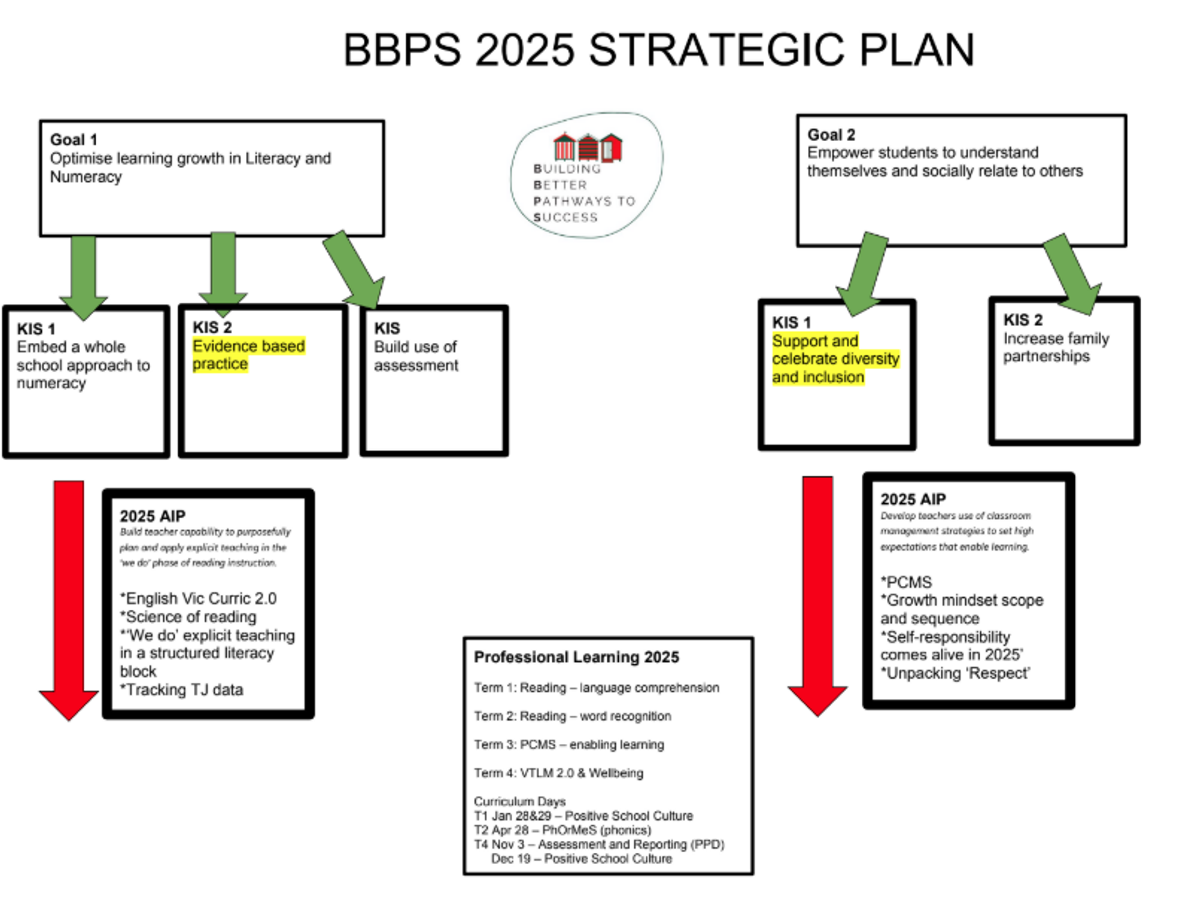Annual Implementation Plan
Louis P and Louis L (Prep) building bridges for STEM

Annual Implementation Plan
Louis P and Louis L (Prep) building bridges for STEM
We have previously shared with you the image below, outlining our key areas of focus for 2025.


Each term we'll be sharing an update with you through our newsletter about how our learning is translating into the classroom.
Our Learning action is:
Build teacher capability to purposefully plan and apply explicit teaching in the 'we do' phase of reading instruction.
That's a lot of teacher talk, so what do we actually mean?
Teachers are building their understanding of the effective teaching of reading based on research based evidence - 'what' we teach based on the new English Curriculum 2.0 and 'how' we teach it, as informed by the science of reading and what we know about how students learn and in particular how students learn to read, which is not the same for every student.
In Term 4 last year we shared a series of newsletter items detailing the foundational research we are using to inform our instructional practice.
Thanks to Shanti Treloar, as curriculum leader, for putting together this instalment, linked to our learning focus:
Brighton Beach Primary School Embraces the Joy of Reading
We're thrilled to announce that our curriculum focus for this year is on fostering a love for reading among our students. Reading is not only a fundamental skill but also a gateway to endless adventures, knowledge, and personal growth.
The Power of Daily Reading
Reading: A Family Affair
Reading isn't just beneficial for students; it's a wonderful opportunity for family bonding. Sharing a book with your child creates cherished moments, establishes comforting bedtime routines, and sparks meaningful discussions about diverse topics. Moreover, children who observe their parents reading are more likely to develop a passion for reading themselves. Parental involvement in reading has been linked to improved language skills and a greater motivation to read.
Tips for Supporting Young Readers at Home
For Parents of Prep to Year 2 Students:
For Parents of Year 3 to Year 6 Students:
By integrating these practices into your daily routine, you can nurture a lifelong love of reading in your child.
Stay tuned for details on the Premier's Reading Challenge next term - we are encouraging all students to participate and will be completing our own class-based challenge to motivate our readers.
We look forward to building your passion for reading at BBPS. Let's do this together!
It is a good distraction to take us ALL away from screens.